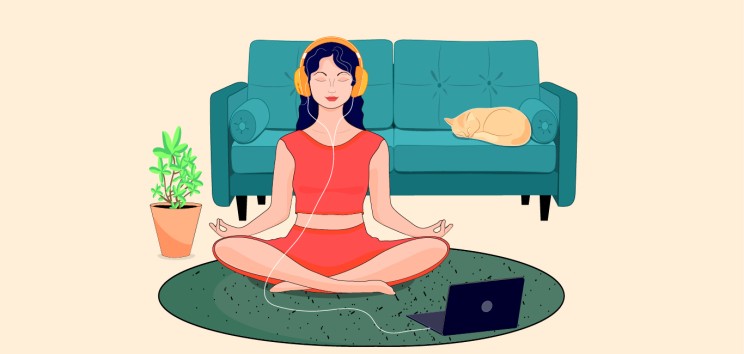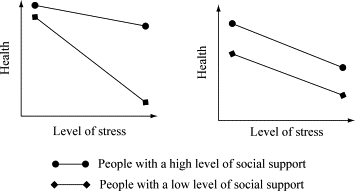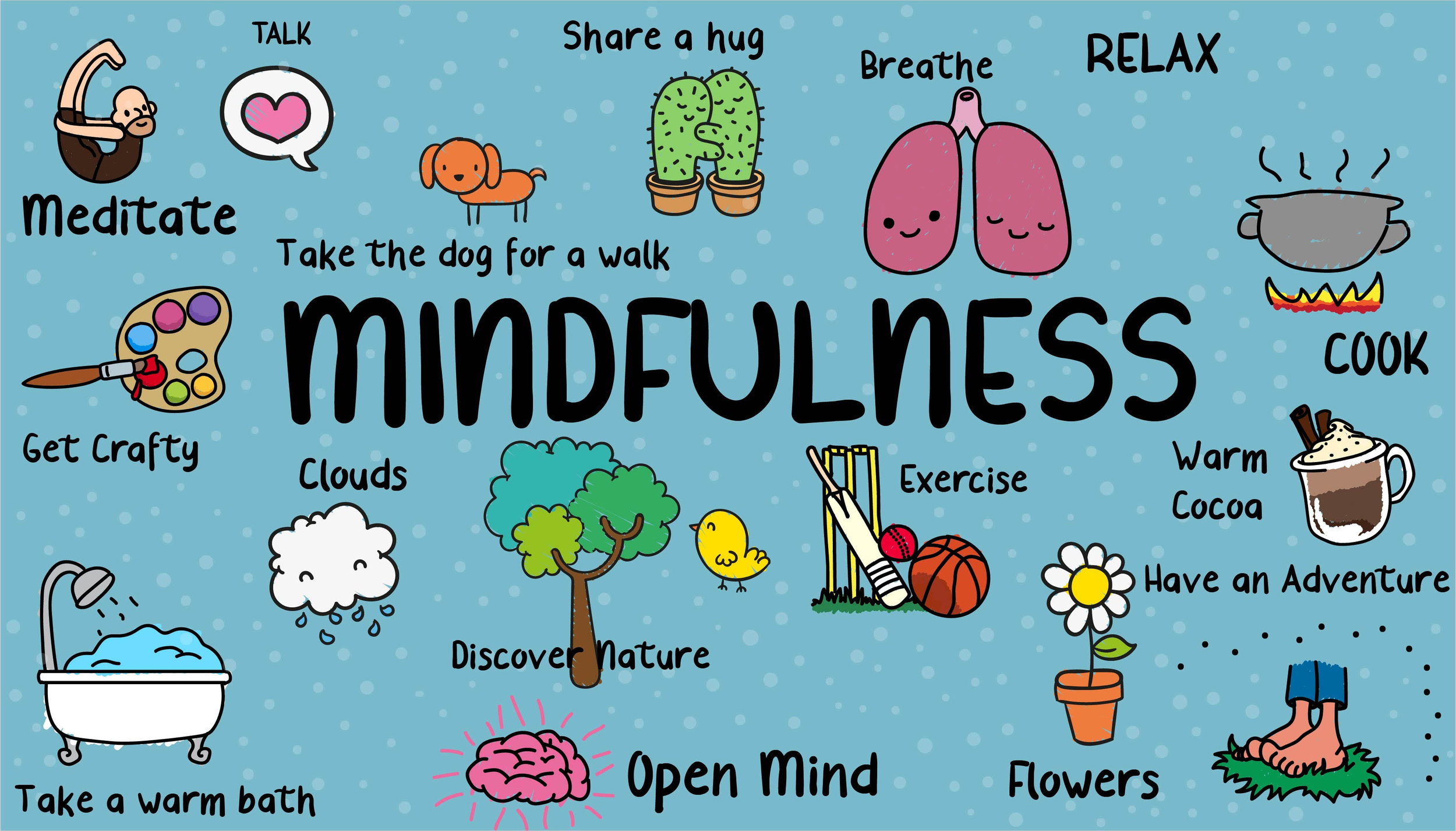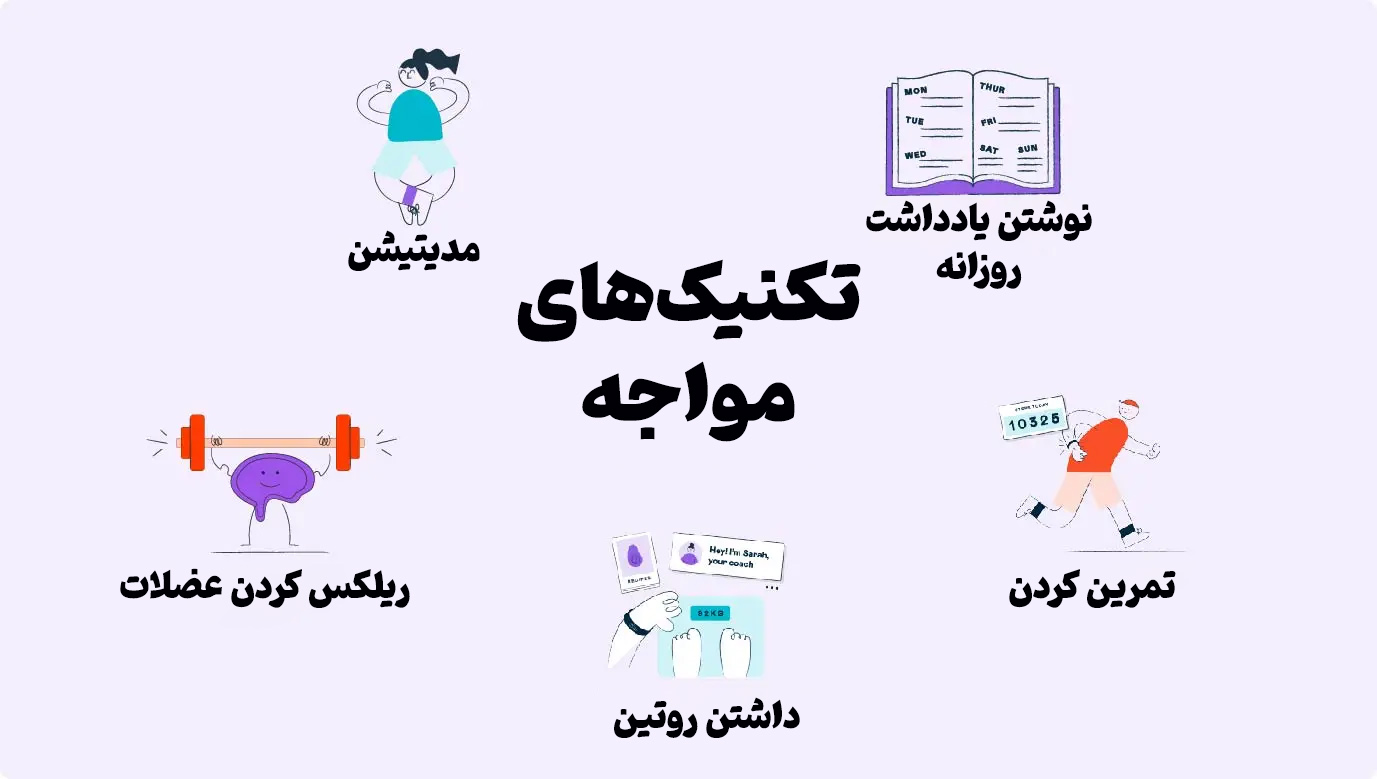How about the students? stress Manage yourself? There are different answers to this question. In this article, 100 fun, interesting and anti-stress activities for Stress management We introduce With the help of these ideas, dealing with stress can be very simple and even enjoyable.
Physical activities
1. Take a walk in nature to calm your mind and breathe fresh air.
2. Practice yoga to improve your flexibility and Reduce stress make it easy
3. Jog slowly to release endorphins and improve your mood.
4. Join a sports team to stay active and interact with your peers.
5. Dance and release stress in a fun way with your favorite music.
6. Try kickboxing or martial arts to release your energy and inner tension.
7. Try swimming in the pool; It works the body and relaxes.
8. Join fitness classes like Zumba or Pilates for a fun and challenging time.
9. Play fun games like basketball, volleyball or soccer with your friends.
10. Experience cycling around the neighborhood or exploring new trails for adventure and exercise.
Creative and artistic activities

11. Paint or draw to express your feelings and unleash your creativity.
12. Write a poem or create a story as an outlet for self-expression and personal reflection.
13. Learn to play a musical instrument to relax and get away from everyday life.
14. Try photography to capture beautiful moments and get inspired.
15. Create a scrapbook or journal to record and document your thoughts and memories.
16. Experience pottery or working with ceramics; A tactile and relaxing activity.
17. Try cooking or baking to enjoy both creative fun and delicious food.
18. Decorate and design your living space to show your personal taste and interest.
19. Practice calligraphy to develop mindfulness and focus.
20. Join a theater group or improv club to unleash your inner actor and have fun.
Techniques to calm the mind

21. Calm your mind and reduce anxiety by doing deep breathing exercises.
22. Contract and release the muscles in order to reduce the tension and relax the body.
23. Listen to relaxation guide audio files to reduce your stress.
24. Use aromatic oils such as lavender or chamomile to make you feel more relaxed.
25. Take a warm bath with special salts or aromatic bombs to relax your muscles and relieve tension.
26. Practice being in the moment to become more aware and less stressed.
27. Squeeze or play with a stress ball or fidget spinner to reduce mental stress and increase focus.
28. Try acupuncture or acupressure to balance your body’s energy and find relaxation.
29. Get a regular massage to relieve muscle tension and promote relaxation.
30. Spend time in a sensory deprivation tank to deeply relax and reduce stress.

31. Make a plan for each day or week so you know what to do next.
32. Break big tasks down into smaller chunks so they don’t seem overwhelming.
33. Use a timer or apps like Pomodoro to have short, focused work periods.
34. Identify the most important tasks and do them first to get ahead.
35. Set achievable goals and deadlines to stay motivated.
36. Turn off distractions like phone notifications and work in a quiet place.
37. Don’t take on too much—sometimes saying “no” is necessary to keep your cool.
38. If possible, delegate tasks to lighten your workload and find free time.
39. From technology tools such as calendars, planners and apps Management Use tasks to stay organized.
40. Review and adjust your schedule regularly so that it is aligned with your priorities and goals.
Social activity and support

41. Get emotional support and encouragement from friends or family members.
42. Join a club or student society to meet like-minded people and make friends.
43. Attend social events or retreats to relax and have fun with friends.
44. Attend group therapy or support groups to connect with people with similar problems.
45. Volunteer for charity to help the community and build meaningful relationships.
46. Make regular phone or video calls with loved ones who are far away.
47. Plan a game night or a movie marathon with your friends to have fun and relaxing hours.
48. Attend university events or workshops to meet new people and expand your circle of contacts.
49. Form a study group with classmates for brainstorming and study support.
50. If you are having trouble dealing with stress or feeling depressed, consulting a psychiatrist or counselor is the right way to go. They can help you feel better and find solutions.
Cognitive strategies

51. Practice kind self-talk to change negative thoughts.
52. Look at problems from a different angle to get a better sense.
53. Write down the things that make you happy every day.
54. Focus on the present moment to avoid negative and useless thoughts.
55. Try to deal with imperfection and reduce perfectionism.
56. Be kind to yourself when things don’t go well.
57. Do things that make you happy to feel better.
58. Set boundaries with others to save your time and energy from exhausting activities.
59. Develop problem-solving skills to manage challenges and find effective solutions.
60. Practice relaxation techniques such as guided imagery or visualization to calm your mind and body.
Lifestyle changes

61. Get enough sleep every night to recharge your body and mind.
62. Eat a variety of healthy foods such as fruits, vegetables and whole grains.
63. Reduce caffeine and sugary snacks to reduce anxiety.
64. Drink enough water to have a healthy body.
65. Move regularly to reduce stress and be happier.
66. Walk in nature to feel fresh and get away from tension.
67. Manage your time well so you don’t get overwhelmed.
68. Take short breaks throughout the day to relax and restore your energy.
69. Limit the time you use electronic devices to reduce mental fatigue and eye strain.
70. Do relaxing activities like deep breathing or meditation before going to bed to calm your mind.
Mindfulness activities

71. Practice mindful walking; Carefully pay attention to every step and surroundings.
72. Try mindful eating; Pay attention to the taste and texture of each bite.
73. Do a body scan meditation; Focusing on different parts of the body and their feelings.
74. Practice mindful listening in conversations or while listening to music.
75. practice conscious breathing; Notice each inhale and exhale.
76. Practice loving-kindness meditation and send positive thoughts to yourself and others.
77. Try conscious writing; Write down thoughts and feelings without judgment.
78. Do conscious movements like tai chi or qigong to cultivate awareness and relaxation in the body.
79. Repeat mindful eating; While eating, be aware of hunger and fullness and eat without distraction.
80. Be fully present in everyday activities such as washing dishes or brushing your teeth.
Regulation of emotions
81. Identify and name your feelings for better self-awareness and understanding.
82. When stressed, take a few deep breaths to calm down.
83. Do happy things to feel strong and cheerful.
84. Express your emotions through art, music or writing to release.
85. Try relaxation techniques such as tensing and releasing muscles or visualizing peaceful scenes.
86. Try to observe your thoughts without reacting quickly to manage them better.
87. Be active or do light exercise to release the accumulated stress in the body.
88. Be kind to yourself during difficult times and practice self-compassion.
89. Talk to trusted people or a therapist about your feelings for support.
90. Do relaxing activities like taking a warm bath or listening to soft music.
coping strategies

91. Find activities that make you feel better, such as exercise, meditation, or spending time with loved ones.
92. Find solutions to problems so you can fix them and feel better.
93. Build a network of friends, family or people who will support you during difficult times.
94. Do hobbies and activities that you like to reduce stress.
95. Take your care seriously; Prioritize activities that energize your body and soul.
96. Have healthy boundaries with others to avoid destructive activities.
97. If you are struggling with stress or depression, see a counselor or therapist; You can find a solution with their help.
98. Learn how to defend yourself in a healthy way; It means express your wishes and needs clearly and decisively.
99. Practice mindfulness to stay present and calm during stressful times.
100. Don’t forget to be patient and kind to yourself; Deal with challenges rationally throughout life.
Stress management is essential for students!
Stress management is essential for students, especially those facing academic and personal pressures. Stress management plays a vital role in maintaining health The public has students.
What do you think about our offers? What do you do to manage your stress?
Source: Linkedin
Source Link

